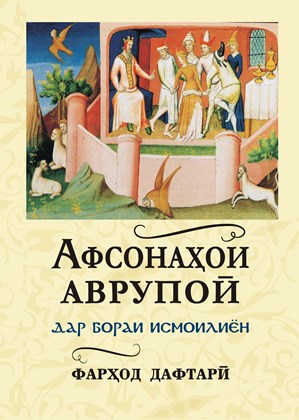Legendy ob Assasinakh Mify ob ismailitakh
Ladomir
This is a Russian translation of F. Daftary, The Assassin Legends.
Description from The Assassin Legends
Since the twelfth century fantastical tales of the Assassins, their mysterious leader and their remote mountain strongholds in Syria and northern Iran have captured the European imagination. These legends first emerged when European Crusaders in the Levant came into contact with the Syrian branch of the Nizari Isma‘ilis, who at the behest of their leader were sent on dangerous missions to kill their enemies. Elaborated over the years, the legends culminated in Marco Polo's account according to which the Nizari leader, described as the ‘Old Man of the Mountain’, was said to have controlled the behaviour of his devotees through the use of hashish and a secret garden of paradise. So influential were these tales that the word ‘assassins’ entered European languages as a common noun meaning murderer, and the Nizari Isma‘ilis were depicted not only in popular mythology but also in Western scholarship as a sinister order of ‘assassins’.
In recent decades new scholarship on the history of the Isma‘ilis , a major Shi‘i Muslim community, has established the extent to which older Western accounts of the sect have confused fact and fantasy. In view of the very different picture of Isma‘ili history that has now emerged, Farhad Daftary’s book considers the origins of the medieval Assassin legends and explores the historical context in which they were fabricated and transmitted. How did they persist for so long, and in what form did they come to exert such a profound influence on European scholarship? Daftary’s fascinating account ultimately reveals the extent to which the emergence of such legends was symptomatic of both the complex political and cultural structures of the medieval Muslim world and of Europe's ignorance of that world. The book will be of great interest to all those concerned with, Isma‘ili studies, the history of Islam and the Middle East, as well as the medieval history of Europe. Also included as an appendix is the first English translation of the French orientalist Silvestre de Sacy’s famous early nineteenth-century Memoir on the Assassins and the etymology of their name.
Contents from The Assassin Legends
Note on Transliteration and Abbreviations
Preface
1. Introduction
2. The Ismaʿilis in History and in Mediaeval Muslim Writings
3. Mediaeval European Perceptions of Islam and the Ismaʿilis
4. Origins and Early Formation of the Legends
Appendix: Silvestre de Sacy’s Memoir on the ‘Assassins’
Introductory Note, by Farhad Daftary
Memoir on the Dynasty of the Assassins, and on the Etymology of their Name, by Antoine I. Silvestre de Sacy, translated by Azizeh Azodi, edited by Farhad Daftary
Select Bibliography
Index
Farhad Daftary is Head of the Department of Academic Research and Publications at The Institute of Ismaili Studies, London. An authority on Isma‘ili history, Dr. Daftary’s publications include The Isma‘ilis: Their History and Doctrines (1990), Mediaeval Isma‘ili History and Thought (1996), A Short History of the Ismailis (1998), and Intellectual Traditions in Islam (2000).

